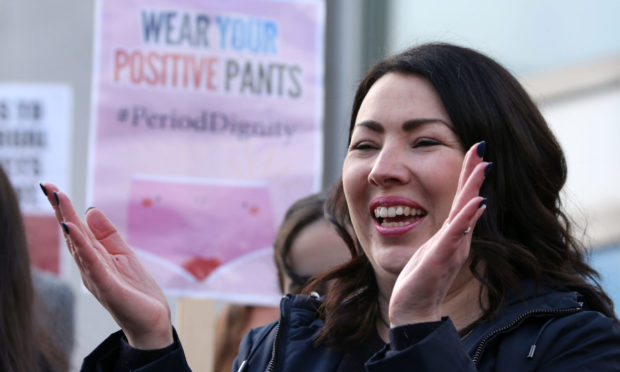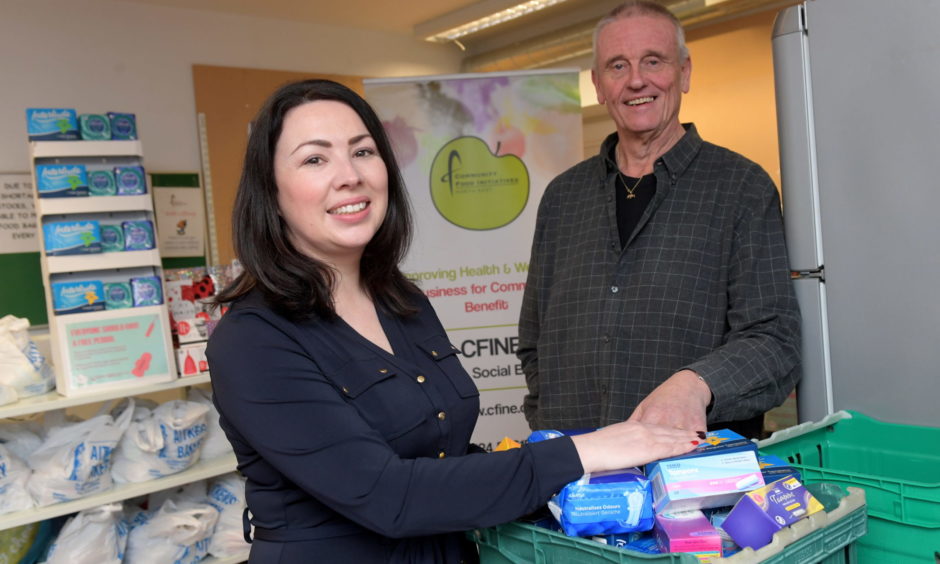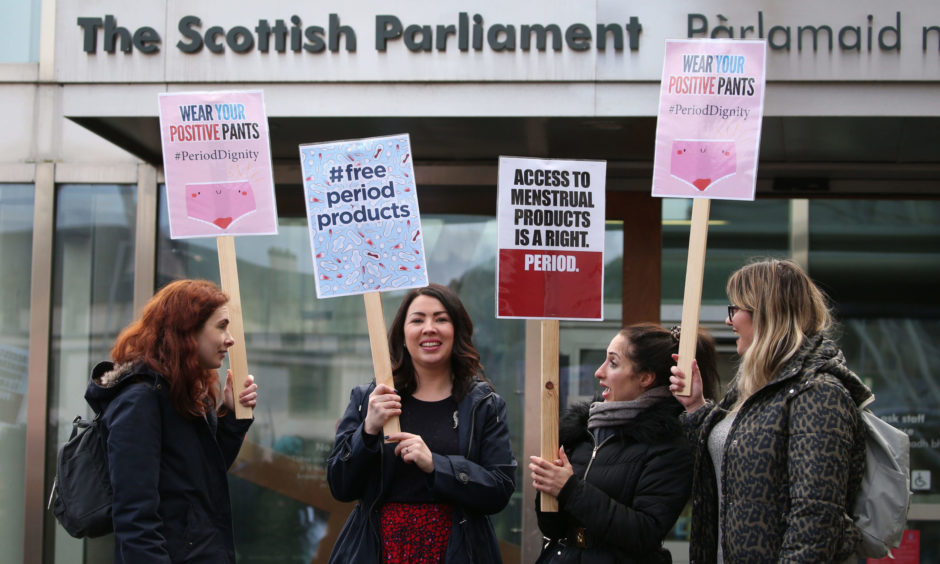Period poverty campaigner Monica Lennon said proposed legislation to make sanitary products freely accessible in Scotland remains “on track” to become law this year.
Despite the myriad challenges thrown up by Covid-19, the Scottish Labour MSP is still “confident” the bill could enter the statute books by the end of 2020.
MSPs voted in favour of approving the general principles of the bill at its first stage in February, bringing Scotland one step closer to becoming the first country in the world to make period products freely available to all.
Ms Lennon, who has championed the issue since being elected to parliament in 2016, said the bill, which has not yet passed stage two, is in a “good, strong place”.
The next milestone will see the financial resolution behind the bill lodged with the Scottish Parliament by August 25, before hopefully progressing to stage two, where any amendments will be scrutinised in order to “fine tune” the legislation.
The Scottish Labour politician said: “It’s on track and given the time that we have and given there’s widespread support for the bill in parliament, I’m quite confident we can focus and steam ahead.
“I am confident it can be 2020. That would be much better for everyone concerned and for the people who need access to period products. The sooner we can get this bill passed and into the statue books, the better.
“If we can get the financial resolution through the parliament before August 25 and if we can get the committee working, they will want to be efficient, then I do believe there will be time before now and the end of this calendar year.
“But we do have until March next year so there is a bit of time but all the discussions I’ve had with Aileen Campbell (Cabinet Secretary for Communities) is, we want this legislation to pass.”
The proposed legislation would introduce a legal right of access to free products such as tampons and sanitary pads on a universal basis.
Although Ms Lennon did manage to gain the support of colleagues to get the bill through its first stage, some members had expressed concerns around the predicted costs and design of the scheme.
The MSP had originally estimated the bill would cost £9.7 million a year, based on information provided from the Scottish Government and guided by a pilot they ran in Aberdeen.
However, Holyrood estimated the annual bill would be substantially higher, at £24m.
Speaking earlier this year, Ms Lennon said her methodology was “robust” and based on pilot schemes elsewhere, including Aberdeen, which provided more than 1,000 women and girls with period products.
Ms Lennon said while no one is being “blasé” about the funding for the scheme, “everyone realises there’s a cost of doing nothing”.
While the bill will ensure the right to access sanitary products for free in schools, colleges and universities continues, it will also enshrine in law the ability for anyone who needs the products to access them in their own communities.
The MSP, who is also health spokeswoman for Scottish Labour, said the products have already been provided in settings including community centres and hubs in areas such as Ayrshire and North Lanarkshire, but could also be provided in a library, sexual health clinic or GP practice.
‘Periods don’t stop during a pandemic’
On why the bill remains so important to progress in the midst of a global pandemic, Ms Lennon argues the need to access these products has not changed, and has, in fact, increased for the poorest young people and families struggling financially as a result of Covid-19.
Ms Lennon said there is acceptance that “periods don’t stop during a pandemic” and that period poverty instead has become “more apparent” in recent weeks and months, with individuals facing more barriers in accessing products.
Provision that has been made available in schools, colleges and universities has largely been inaccessible to young people and learners during the pandemic.
Ms Lennon added: “With my discussions with the Scottish Government, we’ve reflected heavily on the lessons of the last financial crash and what happened from 2008 onwards.
“There’s a stack of evidence which shows women were hit the hardest by austerity and if we drop the ball on this now then women’s rights could go backwards and that’s a very real fear.
“Often, not always, it’s women who are left with caring responsibilities for children and grandchildren and sometimes elderly parents, too, while sometimes holding jobs.
“My vision is to make sure no one has the indignity, that no one has to worry about going to work or school because they don’t have enough or any period products.
“I fear with coronavirus, the economic shock and impact, we’ve only had a taste of it and that’s why I’m really determined during my time in parliament, with the limited time we have left, to get this legislation through.”
The MSP has had a “huge amount” of emails from campaigners checking in on the progress of the bill.
The legislation nearing this stage has followed four years of campaigning from Ms Lennon, who said her journey began by walking up and down parliament in 2016 cradling boxes of tampons and sanitary pads in a bid to get politicians to sign her motion to hold the first debate on the subject.
But how has the process of getting a future law progressed through parliament in the midst of Covid-19 been?
The parliamentarian said people have “adjusted” to the new normal, with discussions between her staff and government officials taking place online, and emphasised there remains a “real commitment and focus” on getting the legislation progressed into law.
I just won’t compromise when it comes to the rights of women and girls.”
Monica Lennon
She added: “I sometimes reflect and feel a little bit anxious because I know in politics there are always competing priorities.
“Maybe if it had been a few weeks later (following outbreak of Covid-19), this Bill would not be in the good position it’s in now.
“I just won’t compromise when it comes to the rights of women and girls.
“We’ve done a lot of work in Scotland but not yet enough.”


